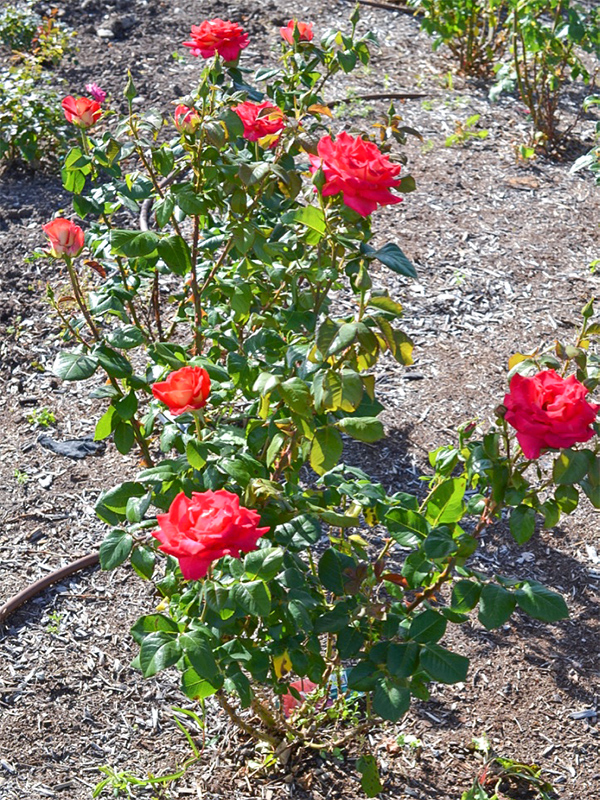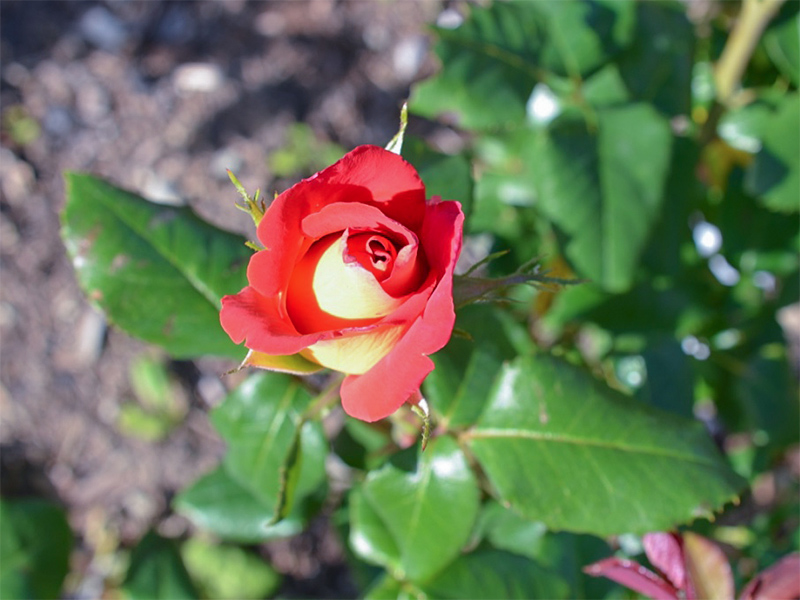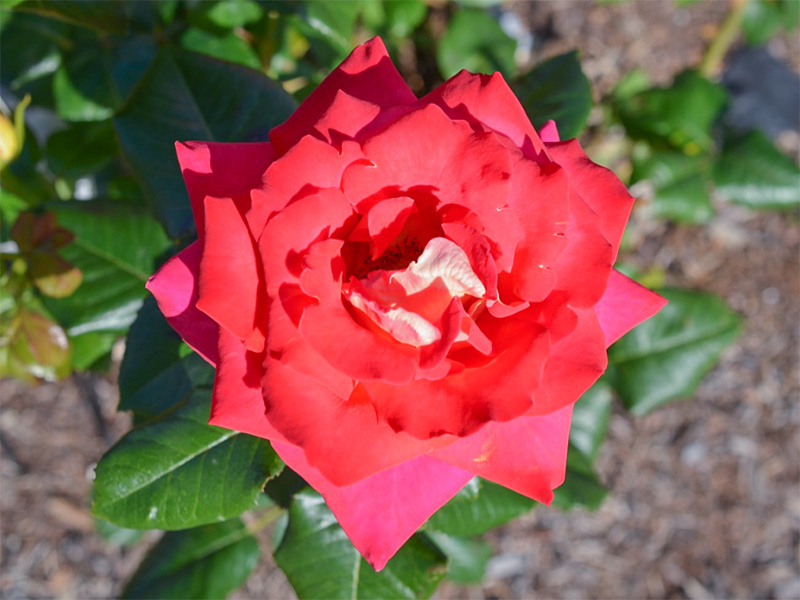| General Description | A hybrid tea rose. |
| ID Characteristic | A unique combination of scarlet red that fades to a pale yellowish-orange near the bases of the petals. |
| Shape | Upright. |
| Landscape | Beds and borders, cut flowers, rose gardens, informal gardens, city and courtyard gardens or as a specimen. |
| Cultivation | Plant in full to partial sun in moist but well-drained soil. Apply a slow release fertilizer in early spring just as leaves emerge. Prune old flowers to encourage re-blooming. |
| Pests | Can be affected by diseases such as black spot, rose rust, or powdery mildew but each are highly unlikely. |
| Habitat | Horticultural origin. |
| Bark/Stem Description | Robust, upright-growing, slightly woody, glaborous medium green stems that don characteristic reddish-green thorns. |
| Flower/Leaf Bud Description | Simple pinnate scarlet reddish-orange flower buds appearing terminally as solitary bud or in bunches of 2 - 3 or 4 - 8. |
| Leaf Description | Finely-serrated, simple-pinnate medium to deep green, oppositely-arranged leaves. |
| Flower Description | Highly showy terminal blooms, composed of loosely-arranged whorls of delicate, broad heart-shaped petals. The petals are scarlet red that fade to a pale yellowish-orange near the bases of the petals. |


